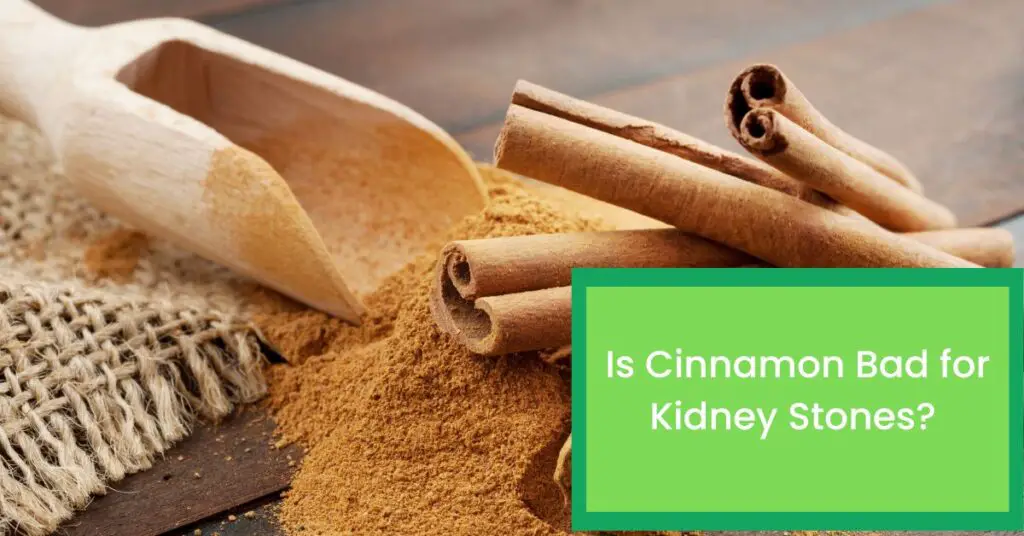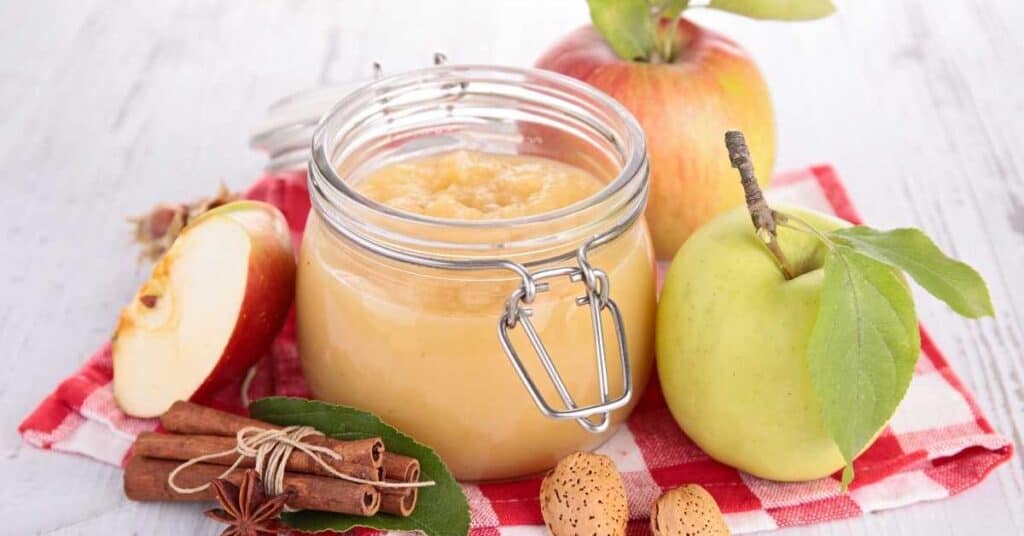Cinnamon is a spice that has been used for centuries in traditional medicine. It is rich in antioxidants and has anti-inflammatory properties.
Kidney stones are small, hard deposits that form in the kidney. They are made up of minerals and salts that have crystallized in the kidney. Kidney stones can cause pain and blockage of the urinary tract.
Moderate consumption of cinnamon has been shown to be effective in reducing the formation of kidney stones.
However, scientists say that high consumption of cinnamon is bad for you, especially if you have a history of kidney stones.
Though it seems that cinnamon is not bad for kidney stones, it’s clear that cinnamon might contribute at a certain level to increasing the risk of developing kidney stones.
So, is cinnamon really bad for kidney stones? In this article, we will find out the impact of cinnamon on kidney stones and further information in related areas.
The Impact of Cinnamon on The Human Body
Cinnamon has been used as a spice and medicinal herb for centuries. It is obtained from the inner bark of certain trees in the genus Cinnamomum.
Cinnamon has a sweet, warm and aromatic flavour that makes it a popular addition to many dishes.
Recent studies have shown that cinnamon has numerous health benefits. It can help improve blood sugar control in people with diabetes, lower cholesterol levels and reduce inflammation.
Cinnamon may also have a protective effect against Alzheimer’s disease and other forms of dementia.
Cinnamon is safe to consume in small amounts. However, it is important to purchase cinnamon from a reputable source, as some types may contain harmful compounds.
Too much cinnamon can be toxic and cause side effects such as liver damage. Therefore, it is best to consult with a healthcare professional before adding cinnamon to your diet.
What Causes Kidney Stones?
There are many different things that can cause kidney stones.
Kidney stones happen when there is a build-up of certain substances in the body, usually in the kidneys.
When these substances become too concentrated, they can form crystals. These crystals can then grow and turn into kidney stones.
There are many different factors that can contribute to the formation of kidney stones. One of the most common reasons are dehydration, high-protein foods, and certain medical conditions.
Talking about dehydration when the body does not have enough fluids, the urine becomes more concentrated and can lead to the formation of crystals.
Other factors that can contribute to kidney stone formation include diet, certain medical conditions, and medications.
Dietary factors that can contribute to kidney stones include eating a lot of high-protein foods, such as red meat and poultry, as well as foods that are high in calcium, oxalate, or sodium.
High-protein diets can increase the amount of uric acid in the urine, which can lead to kidney stones. Foods that are high in calcium, oxalate, or sodium can also promote the formation of kidney stones. Whereas potassium-rich food will help prevent kidney stones.
Certain medical conditions can also increase the risk for developing kidney stones. These include gout, inflammatory bowel disease, and renal tubular acidosis.
Medications that can contribute to kidney stone formation include diuretics, calcium channel blockers, and some antacids.
If you are at risk for developing kidney stones, there are some things that you can do to help prevent them. Drink plenty of fluids, especially water, to keep your urine diluted. Limit your intake of high-protein foods and eat a balanced diet.
Kidney stones can be painful and cause difficulty urinating. If you think you might have kidney stones, talk to your doctor. There are treatments available that can help relieve the pain and pass the stones.
Visual Explanations: https://www.youtube.com/watch?v=W0GpIMNTPYg
How Does High Cinnamon Consumption Cause Kidney Stones?
Cinnamon is a spice that is used in many different cuisines around the world.
It has a distinct flavour and can be used to add flavour to both sweet and savoury dishes. Cinnamon is also used as a natural remedy for various health conditions.
Many people believe that cinnamon has health benefits, but did you know that consuming too much cinnamon can actually be harmful to your health?
Consuming large doses of cinnamon can cause kidney stones by increasing the amount of oxalate in the urine.
Oxalate is a substance that is found in many foods, including spinach, rhubarb, and chocolate. When there is too much oxalate in the urine, it can form kidney stones.
Kidney stones are small, hard deposits that form in the kidneys. They can cause severe pain and difficulty urinating. If left untreated, kidney stones can lead to serious health complications.
If you enjoy eating cinnamon, be sure to consume it in moderation. Stick to the recommended daily amount of 1-2 grams to avoid putting yourself at risk for developing kidney stones.
Resource: https://www.healthtap.com/q/cinnamon-and-kidney-stones/
Resource: https://www.diabetes.co.uk/forum/threads/cinnamon-blood-sugars-oxalates-and-kidney-stones.184986/
What is The Positive Impact of Cinnamon on Your Kidneys When Consumed in Moderate Quantities?
Cinnamon is a delicious spice that can be used in sweet and savoury dishes alike.
But did you know that cinnamon can also have positive impacts on your health, specifically your kidneys?
Cinnamon can help to protect the kidneys from damage and reduce inflammation.
It can also help to improve kidney function and prevent the progression of kidney disease. When consumed in moderate quantities, cinnamon is safe for most people.
So if you’re looking to improve your kidney health, adding a bit of cinnamon to your diet could be a great place to start!
Just be sure not to overdo it – too much cinnamon can actually have negative effects on your health. So stick to moderate amounts and enjoy the delicious benefits of this amazing spice!
Finally, be sure to speak with a doctor before adding cinnamon to your diet if you have kidney disease.
Visual Explanations: https://www.youtube.com/watch?v=HjPQhX-3RLs
Enjoy Moderate Amounts of Cinnamon in Your Diet
Cinnamon is a spice that has many health benefits. It can help lower blood sugar levels, reduce inflammation, and improve heart health.
However, cinnamon can also be toxic in large amounts. Therefore, it’s important to moderate your intake of cinnamon if you want to enjoy its health benefits without putting your health at risk.
One way to moderate your intake of cinnamon is to add it to your diet in small amounts. You can sprinkle it on your cereal or oatmeal, add it to your smoothies, or even use it to flavour your coffee or tea.
Another way to moderate your intake of cinnamon is to take it in supplement form. There are many supplements on the market that contain cinnamon extract.
These supplements can help you get the health benefits of cinnamon without consuming large amounts of spice.
If you want to add cinnamon to your diet, be sure to do so in moderation. By doing so, you can enjoy the many health benefits of cinnamon without putting your health at risk.
Frequently Asked Questions Related to Cinnamon And Kidney Stones
1. Is it safe to consume cinnamon if I have kidney stones?
There is no evidence that cinnamon is unsafe for people with kidney stones.
In fact, various studies suggest that cinnamon increased the levels of a protein in the urine that inhibits stone formation.
Another study showed that cinnamon extract was effective in preventing calcium oxalate crystal growth, which is a common type of kidney stone.
If you have kidney stones, talk to your doctor about whether consuming cinnamon is right for you.
2. Is cinnamon good for urinary tract infections?
Cinnamon is said to be effective in treating urinary tract infections. The spice has antibacterial properties that help fight the infection-causing bacteria.
Additionally, cinnamon is known to boost immunity, which helps the body fight off infections.
Home remedies like these are often recommended by healthcare professionals as they are safe and have few side effects. Eat a handful of raw nuts every day for best results.
3. Which spices are low in oxalates?
There are a few other spices that are low in oxalates, including allspice, ginger, marjoram, mint, oregano, rosemary, and thyme.
However, it’s important to note that even these spices contain some amount of oxalates, so it’s best to enjoy them in moderation.











